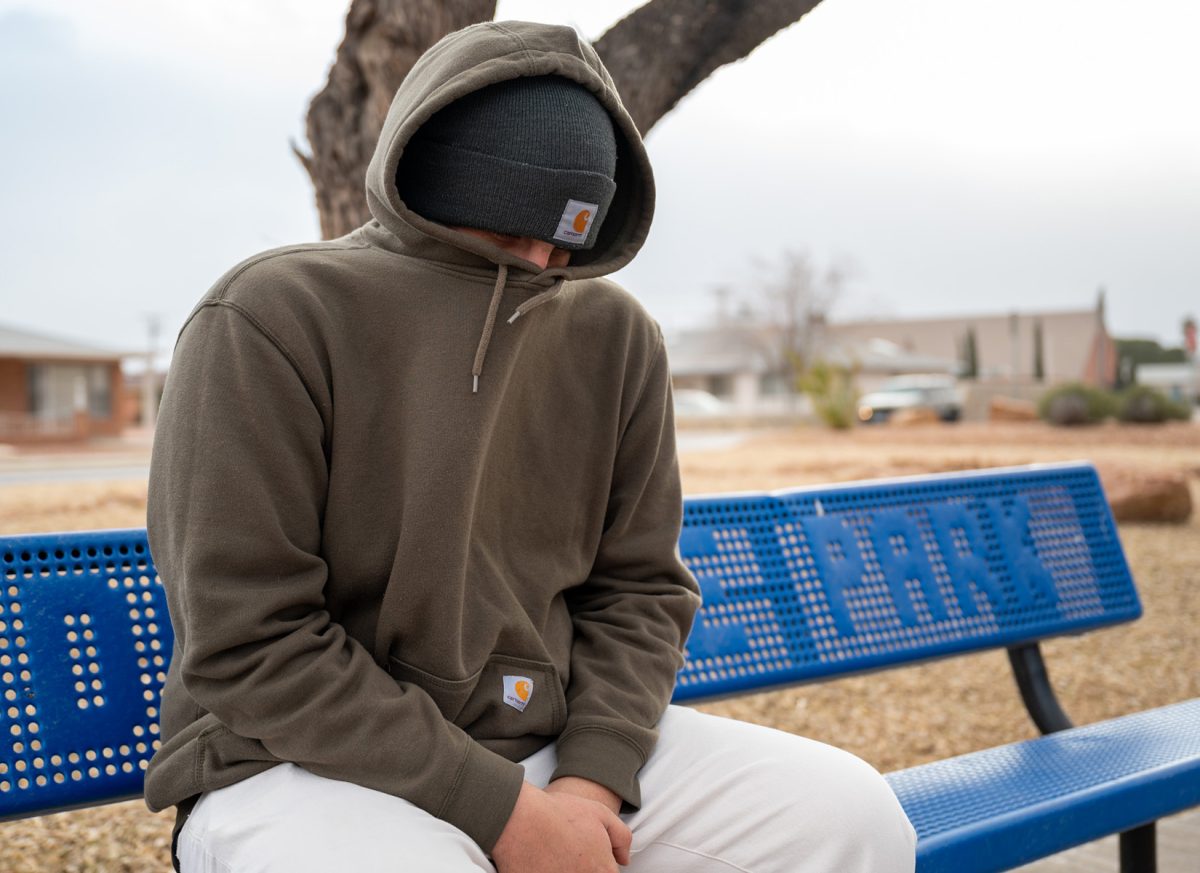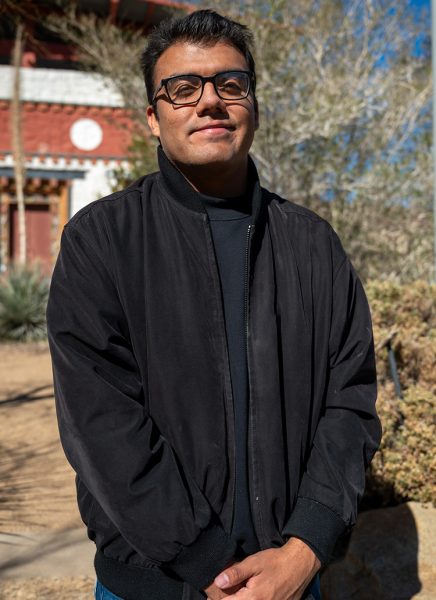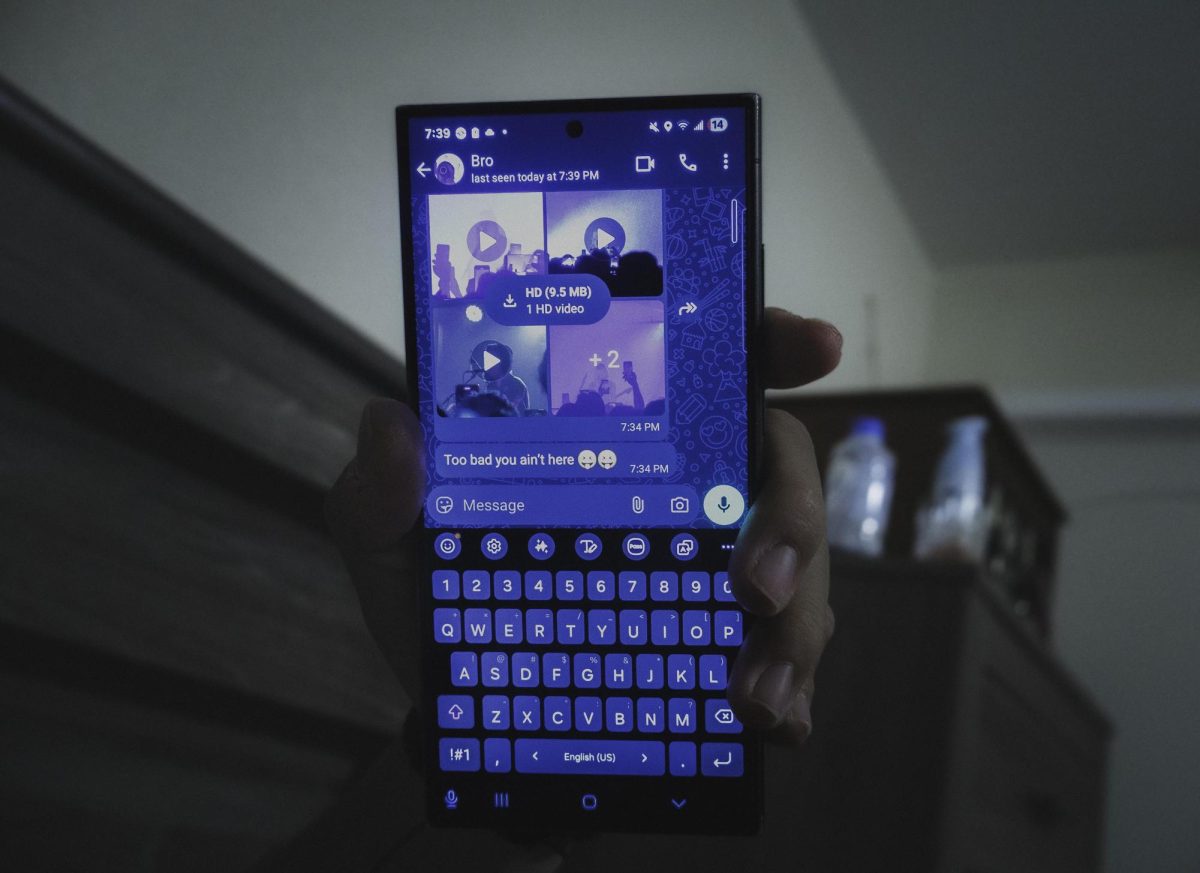As the winter air covers campus in a cold embrace, many UTEP students navigate balancing academic demands with wintertime blues.
Wintertime blues can be described as the feeling of depression or deep unhappiness associated with experiencing the cold and darkness of winter, according to Harvard Health. It is also known as seasonal affective disorder or SAD, and usually occurs in late fall and early winter due to the lack of sunlight exposure.
Licensed professional counselor Graciela Rios says that wintertime blues is a term professionals use when a patient is experiencing an increase in depression and sadness due to cold weather conditions.
“The sadness mood is more active,” Rios said. “It is closely related to cloudy, rainy and cold days. The sun helps us to feel more energetic and to go outside more. So, when winter is very harsh, or it is going on for a long period of time, some people tend to go into the depressive state.”
Rios says that anyone can experience wintertime blues, especially people who have mental conditions, those who focus on the bad things in their life, and highly stressed people, like college students. Some UTEP students say that they have felt this type of blue during the fall and winter seasons.
“To me, wintertime blues is the part of the year where everything’s a bit colder, people are more tired, work seems harder to do and in general everything seems to be moving slower,” said UTEP senior chemistry student Brooke Dorsey. “It’s that feeling you have when even though you may be awake all day, you can’t really remember everything, and you constantly feel tired.”
Dorsey says the feeling of the wintertime blues usually sets in during the end of the fall semester and it is triggered by stress.
“When finals and the holidays roll around and things start to get complicated, I feel like my brain shuts down and I have to work extra hard to get simple tasks done,” Dorsey said. “I can always tell when I start feeling a bit down. I get more anxious over little things, and I am way less socially motivated and have a harder time controlling my emotions.”
For children, winter months mean playing in the snow with friends, making snow angels, riding sleighs, snowball fights and celebrating Christmas with loved ones. However, for young adults it means taking care of responsibilities like finals and other stressful tasks before the year ends.
“It usually happens during the beginning of December,” said senior computer science major Jose Toriano Jr. “It affects me the most when it’s very cloudy and cold and I’m not doing anything at my house. Days like those would have made me happy in the past during the winter season. But for some reason the meaning of those days flipped for me recently.”
Toriano says he thinks the reason for the change is due to growing older and having the responsibilities of being an adult pile on every year. He gets through the wintertime blues by getting out of the house and spending time with family and friends.
“Being with my family and friends definitely helps,” Toriano said. “They help me realize that I am not alone and that every moment I could be anxious and sad is replaced with content and joy. Appreciating the little things and practicing that gratitude everyday helps you grow that little light inside you to combat the darkness that you feel.”
Dorsey says a good coping mechanism she does is creating a to do list and setting a realistic goal for the day.
“My advice to students is to first take a deep breath,” Dorsey said. “Always keep in mind your physical, emotional and mental health. Overall, take your feelings bit by bit and handle them accordingly. Always remember to honor yourself because you are doing great.”
According to Rios, having a routine that includes a good sleeping schedule, physical activity and a healthy social life helps combat the wintertime blues. It is also important to count one blessing and remind themselves that winter is only a season, it will pass.
The Counseling and Psychological Services (CAPS) offers many different services to students dealing with the wintertime blues and can be reached at (915) 747-5302 and [email protected].
Alyson Rodriguez is a contributor may be reached at [email protected]; @alyson_rod1127 on X.
















